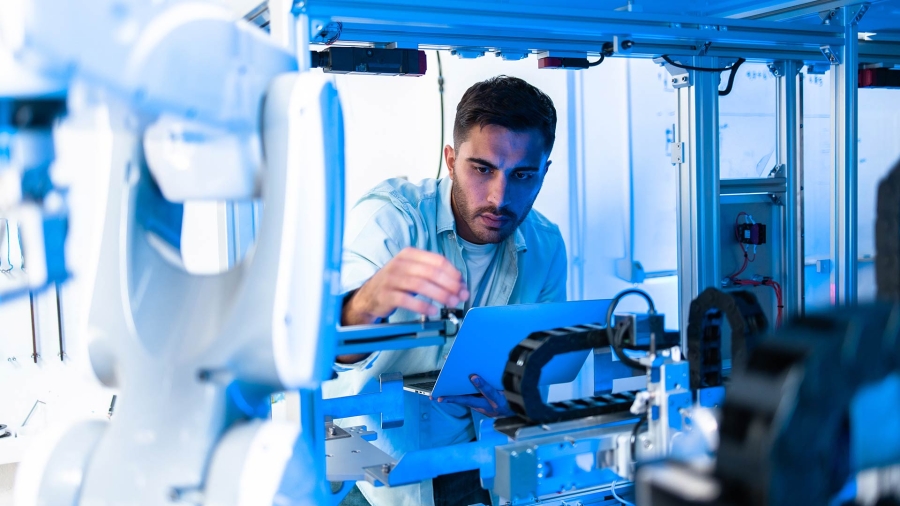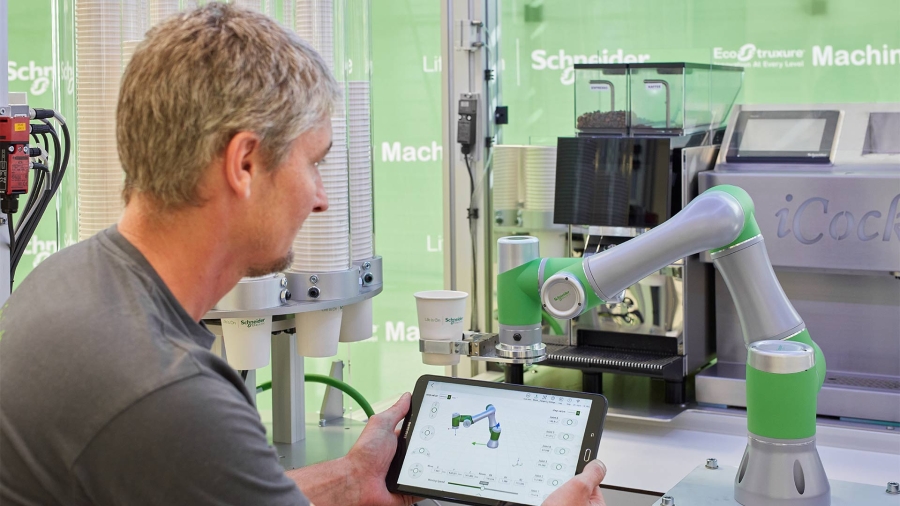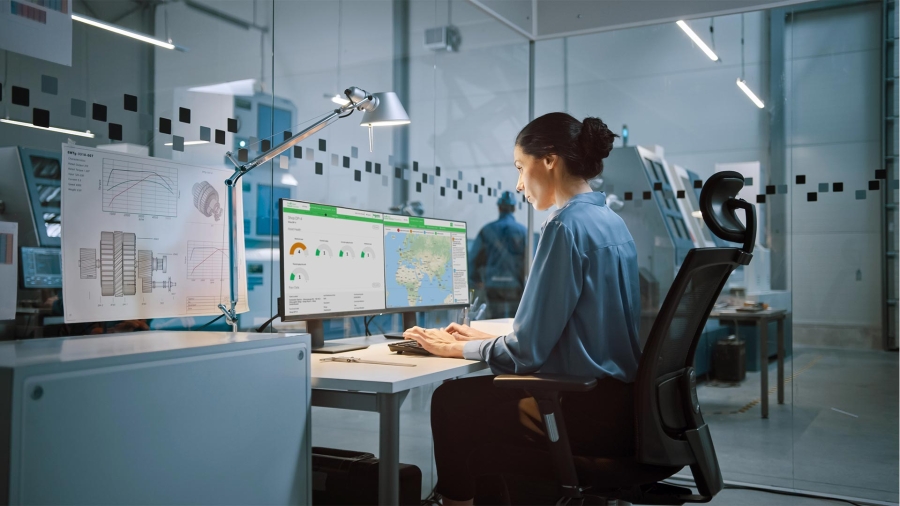Barbara Frei, Executive Vice-President, Industrial Automation, Schneider Electric
The events of the past year have been a wake-up call for the world. On top of the climate crisis came an energy crisis that forced companies, governments and households to think much harder about how to reduce their energy needs and greenhouse gas emissions. In Europe, warnings of power cuts and energy rationing over the winter thankfully did not come true. But there will be more winters. So we need to keep doing more, and faster, to build our resilience to future shocks.
The industrial sector – and industrial transformation -- has a huge part to play in this. After all, many industries are still heavily reliant on coal and other fossil fuels. And the sector’s energy consumption still represents almost 40% of the global total today.
So embracing resource, energy, and operational efficiency -- enabled by digitalization and software-centric automation technologies -- will not only help tackle the energy and climate crisis head-on, but will also give industrial companies the license to operate resiliently and competitively into the future.
Staying focused on industrial transformation and efficiency
The good news is that transformative technologies exist, in the form of the advanced manufacturing and AI-driven industrial automation technologies of Industry 4.0.
Step inside Schneider Electric’s Le Vaudreuil plant in northeast France, for example, and you can witness the technologies of the fourth industrial revolution in action.
From one unified control center, it’s easy to keep track of power usage, control each process and follow the real-time performance of all the plant’s machines and assets. Dashboards display operational data from every corner of the 14,000-square-meter shop floor, giving operators instant updates and alerts on production-line bottlenecks, and insights into the effectiveness of machinery and processes. An army of driverless vehicles and collaborative robots are part of the ebb and flow of the site’s production.
Taking industrial transformation to the next level – from single site to enterprise-wide
Lighthouses of this kind – as the name suggests— are showcase facilities that can guide others in the sector as they seek to overcome the challenges, and scale the opportunities, of the fourth industrial revolution. Since the start of its smart-factory transformation in 2018, Le Vaudreuil has reduced both energy use and carbon emissions by 25%, and the site’s material waste by 17%, for example.
And yet, the uptake of such technologies at scale remains below where it could be. And it is limited mostly to large corporations, with smaller and medium-sized players still on the sidelines.
What’s more, impressive as all this is, we’re just at the start of the journey.
The next chapter in the industrial transformation story is to implement digitized manufacturing technologies not just in single sites, but across complete production and logistics networks, and throughout entire supply chains.
Imagine the benefits of standardizing the exchange of data between IT systems, such as Enterprise Resource Planning (ERP) software, and the operational technology on the shop floor. Or being able to access orders and inventories from interconnected suppliers and partners to improve planning, manage recalls and anticipate supply risks. Or tackling not just your own company’s direct carbon emissions but also your scope 3 emissions by working across your supply chain ecosystem.
Moreover, the high cost of energy, combined with the falling cost of onsite solar generation, means process electrification and local microgrids make more sense than ever for anyone seeking to lower their costs and emissions. And digital technologies allow industries and manufacturing sites to adjust the energy demand of their production process based on the energy supply mix and availability.
Industrial transformation requires a mindset shift
All of this can be challenging, of course, particularly when sites operate in silos, using different legacy systems, standards, approaches, and processes.
It requires companies to fundamentally re-think how they approach industrial transformation. They need to ensure it happens in a systemic, digital, data-driven, and interoperable way that allows them to scale value and operational performance throughout the entire enterprise.
They must get on board with the concept of operating as one integrated organization. This means focusing on more than just short-term productivity, and leveraging the full potential of technological change to become the industries of the future.
And they need to set out a clear technology roadmap establishing strong IT/OT governance around data and cyber security.
Last but definitely not least, successful industrial transformation is about people. It entails making big efforts to attract digitally-savvy people from diverse backgrounds and generations, and continuously offering employees the chance to upgrade their skills and capabilities.
As jobs in industries and manufacturing evolve, governments and corporates have a role and a responsibility to provide quality training and incentivize education, and where necessary, support and work with small and medium-sized firms, in particular.
But at the end of the day, the long-term potential benefits hugely outweigh the challenges. And with neither the energy crisis nor the climate crisis going away anytime soon, we really have no choice.
So, let’s get serious about taking transformation to the next level. That means doubling down -- not slowing down -- on enterprise-wide, data-driven efficiency, and investing in training and skills opportunities for the workforce of tomorrow. Do that, and we’ll have the sustainable, innovative, and resilient industrial companies that the world needs.
Want to know more about industrial transformation and get Barbara Frei’s perspective live? Catch us at Hannover Messe this April 17 – 21, 2023.














